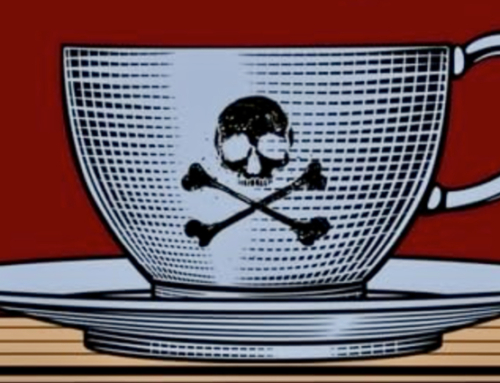Richard Strauss: A Musical Life, by Raymond Holden. Yale University Press.
The Cambridge Companion to Richard Strauss, by Charles Youmans, Cambridge University Press.
I am not a first-rate composer, I am a first-rate second-rate composer. —Richard Strauss
I was never a revolutionary. The real revolutionary was Richard Strauss. —Schoenberg
Richard Strauss studies are now, as Rodgers and Hammerstein said about June, “bustin’ out all over.” Among those of us who experienced Australian campuses during the 1980s—when Strauss, like Puccini and Rachmaninoff, would never be cited save with disdain—the man’s newfound scholarly respectability seems well-nigh incredible, and a fitting occasion for heartfelt sighs of Nunc Dimittis. Not long ago the Journal of the American Musicological Society printed its first ever Strauss-related article. British critic Michael Kennedy, in his 1999 book on the composer, revolutionized treatment of his subject, not least through his intelligent and systematic use of Bavarian archives. And now we have The Cambridge Companion to Richard Strauss: honor indeed. (Since there also exists a Cambridge Companion to John Cage, however, perhaps hosannas are premature.) Strauss used to be despised by everyone except the public. Is the battle for his academic prestige now won?
 Up to a point, Lord Copper. Of the two books described here, only one consistently justifies its release. Musicologist Raymond Holden— Australian-born though British-resident— inspired lukewarm treatment in this magazine’s pages for his rather pedestrian account of Central European conducting. With his new work he concentrates, notwithstanding what his subtitle might imply, on Strauss the performer. This was the book that he really needed to write (and that, oddly, no one else had attempted). It must have taken him ages to prepare—his endnotes alone comprise 38 pages of single-spaced type—but he has clearly, and with Teutonic thoroughness, read everything even halfway relevant.
Up to a point, Lord Copper. Of the two books described here, only one consistently justifies its release. Musicologist Raymond Holden— Australian-born though British-resident— inspired lukewarm treatment in this magazine’s pages for his rather pedestrian account of Central European conducting. With his new work he concentrates, notwithstanding what his subtitle might imply, on Strauss the performer. This was the book that he really needed to write (and that, oddly, no one else had attempted). It must have taken him ages to prepare—his endnotes alone comprise 38 pages of single-spaced type—but he has clearly, and with Teutonic thoroughness, read everything even halfway relevant.
Would that the Companion reflected a similar sense of duty. It has good things. Alex Ross of The New Yorker brings his deft, agile, sane intelligence— itself somewhat Straussian—to the task of analyzing Strauss’s technical impact on Schoenberg, Messiaen, and even Hindemith. (Schoenberg’s attitude to Strauss oscillated between respect and anger, respect finally predominating.) Walter Werbeck, of Griefswald in Germany’s northeast, furnishes a valuable report on Strauss’s surviving sketchbooks and drafts. How strange to discover the trouble Strauss originally had in writing slow music, when writing fast music seems never to have posed him the slightest problem, as is confirmed by the rampageous opening of “Don Juan,” his first out-and-out orchestral triumph. (American Record Guide once began a critique of an all-Strauss CD with the words: “It’s depressing to realize that everything on this disc had been written before Strauss turned 30.”)
Scott Warfield, from the University of Central Florida, supplies a helpful, if unduly brief, investigation of Strauss’s financial interests, rightly stressing the master’s need to support his family “in an era that had nothing of the welfare state.” Strauss’s lack of formal schooling debarred him from collegiate employment, although after receiving an honorary degree from Heidelberg he allowed himself the innocent foible of adopting the prefix “Dr.” (More comprehensive information about Strauss’s energetic laboring to ensure copyright protection for German composers— ASCAP brought about something similar in U.S., and the Performing Right Society in Britain—would have been welcome.)
From Ottawa’s James Deaville we have a scrupulous description of musical life in the allegedly boring Munich of Strauss’s boyhood. It was news to this reviewer that so many American visitors wrote about Munich in the decades after Appomattox. Equally, I had been unaware that the young Strauss could easily have heard numerous excellent sacred works by Palestrina, Tomás Luis de Victoria, Roland de Lassus, and other ancient masters, these revivals being largely thanks to J.G. Rheinberger, an admirable local musician whose sonatas for organ are familiar to every modern player of that instrument. Altogether Ross’s, Werbeck’s, Warfield’s, and Deaville’s unpretentious essays augment our perception of Strauss’s genius.
Little else in the book does. To be sure, feminists, outright Marxists, and such champions of Western white-collar proletkult are mercifully absent from the list of contributors. (Amid the Cold War, their denunciations of the “bourgeois” Strauss for “fascism” and “decadence” were as unintentionally hilarious as—in fact largely indistinguishable from—the anti-Strauss diatribes emerging from Mao and his goons during China’s Cultural Revolution.) Alas, too much of the Companion’s material resembles mere rehashes from concert program notes, albeit with such unwelcome jargon as “paratactic” inserted. Repetitions from chapter to chapter abound. Strauss’s pre-“Salome” operatic try-outs and his orchestral prentice works are afforded disproportionately intricate coverage, while his often sublime theatrical achievement after “Ariadne auf Naxos” is skimped, though not wholly ignored, since it defies even the terminally hip to discount the magnificence of “Die Frau ohne Schatten.” Almost unbelievably, T.W. Adorno’s collected aesthetic splutterings are alluded to as if they had ever possessed some kind of cognitive logic. Contemplating Alban Berg temporarily made Adorno deviate into sense, but his rants against most other composers are guaranteed insight-free.
The censure by Michael Walter (from Graz, Austria) of Strauss’s behavior during the Third Reich is strong on moralizing, less so on accuracy. “It was not until 1944,” Walter assures us, “that Strauss himself fell out of favor with the regime.” This would have puzzled Strauss himself, whom Goebbels had been harassing for years, culminating in a 1942 interview where Goebbels yelled in Strauss’s face threatening insults that just stopped short of vowing physical violence. As for the effort by Duke University’s Bryan Gilliam, the title alone appears to have strayed from Private Eye’s “Wimmin” column: “Strauss and the Sexual Body: The Erotics of Humor, Philosophy, and Ego-Assertion.” In what must have been a deliberate strategy, given that the Companion and Michael Kennedy’s appraisal derive from the same publishing house, all mention of Kennedy has been omitted save for one fleeting bibliographical reference. We have here, not for the first time in recent Cambridge musicological history, 338 pages in search of an editor.
 Precious few Companion authors have identified any danger in the Biographical Heresy. Thus, it has been taken for granted that Strauss’s second opera “Feuersnot”—dominated by the antihero Kunrad, whose sexual morals can be summed up in the celebrated T-shirt “If you won’t sleep with me, the terrorists have won”—is a mere coded musical memoir. We are told without evidence, or qualification, that Kunrad is “alias Strauss” and his master is “alias Wagner.” Say what? Must Strauss’s inventive faculty be expunged from any consideration of his approach? Apparently yes. You would never suppose from such reductive drivel that the composer, while willing to sow wild pre-marital oats, stayed faithful to his wife throughout their 55-year union. (Frau Strauss’s sole suspicion of an affair proved to be unfounded.) Strauss’s old friend Romain Rolland stated once a profound truth: that only bad artists write about what they have done, whereas great artists write about what they might have done. If Dante had gone to bed with Beatrice he could never have produced The Divine Comedy.
Precious few Companion authors have identified any danger in the Biographical Heresy. Thus, it has been taken for granted that Strauss’s second opera “Feuersnot”—dominated by the antihero Kunrad, whose sexual morals can be summed up in the celebrated T-shirt “If you won’t sleep with me, the terrorists have won”—is a mere coded musical memoir. We are told without evidence, or qualification, that Kunrad is “alias Strauss” and his master is “alias Wagner.” Say what? Must Strauss’s inventive faculty be expunged from any consideration of his approach? Apparently yes. You would never suppose from such reductive drivel that the composer, while willing to sow wild pre-marital oats, stayed faithful to his wife throughout their 55-year union. (Frau Strauss’s sole suspicion of an affair proved to be unfounded.) Strauss’s old friend Romain Rolland stated once a profound truth: that only bad artists write about what they have done, whereas great artists write about what they might have done. If Dante had gone to bed with Beatrice he could never have produced The Divine Comedy.
Ludicrously underestimated in the Companion as a whole is the vital factor within Strauss’s temperament of sheer joshing playfulness. He would throw admirers off the scent with the most straight-faced nonsense. Who but Strauss could have referred to his final masterpieces as “wrist exercises”? Calling “Metamorphosen,” in particular, a “wrist exercise” is like calling “King Lear” a sitcom about elder abuse. Part of Strauss’s early gift for causing scandal came from the difficulty audiences and journalists experienced in getting their heads around the very idea of a German composer being ironic. When Strauss purported to salute Nietzsche in “Also Sprach Zarathustra” and to satirize hostile critics in the boisterous sarcasms of “Ein Heldenleben,” at least a part of him did so in the same spirit that the juvenile Bill Bryson showed more than half a century later, zapping real and imagined foes with the admonition “You really should never f–k with the Thunderbolt Kid.”
After the chic misrepresentations enjoying excessive Companion space, Holden’s survey of Strauss the interpreter comes as balm to the soul. (A précis of it appears in the Companion itself.) What a stupendous, lion-hearted workaholic Strauss was as—to quote Holden—“a jobbing conductor for the greater part of his life”! We who whine about needing to give two solo recitals in two months should ponder the schedule Strauss maintained on the rostrum, not for months but for decades. Here, chosen absolutely at random, is a list of what Strauss directed in a single three-week period at Berlin during 1900: a Wagner opera thrice (“Meistersinger”), a Mozart opera twice (“Figaro”), and the following operas once each: “Don Giovanni,” “The Magic Flute,” “Le Cheval de Bronze” by France’s Daniel Auber (1782-1871), “The Merry Wives of Windsor” by Germany’s Otto Nicolai (1810-1849), and the once fantastically acclaimed “Der Evangelimann” by the now-forgotten Austrian Wilhelm Kienzl (1857-1941). Each of these required rehearsals as meticulous as they were protracted. Holden gives fascinating details about how Strauss annotated the scores he owned.
In the Mozart works, Strauss would usually officiate from the keyboard and would improvise continuo contributions night after night. (They really were improvised, as the conductor Wolfgang Sawallisch attested, and sometimes included cheeky references to his own pieces.) Meanwhile he needed to compose, give interviews, and deal with correspondence from the usual posse of lunatic strangers afflicting the famous. There are coalminers who live more luxurious lives than that. We are here at the opposite remove from the bohemian mindset derided by Orwell: “sluttish antinomianism— lying in bed till four in the afternoon, drinking Pernod.”
Did Strauss’s workload destroy him? Staggeringly, it did him no physical or mental harm, and when he breathed his last in 1949 he was 85 years of age, witty to the end. “Dying,” he is said to have announced, “is just as I composed it in ‘Tod und Verklärung.’” Neither Holden nor the Companion can shed any light on Strauss’s religious attitudes. Those remain enigmatic. Allegiance to the Roman Church, which his mother quietly retained, he abandoned equally quietly in adolescence. Nietzschean discipleship, insofar as he ever embraced it, had nothing to do with the process; it came later. No identifiable spiritual crisis occurred; he simply switched off, like a lamp, his churchgoing propensities. He insisted on a secular funeral and, remarkably, on cremation—rare in Catholic Bavaria even now, almost unthinkable in 1949. Yet Christopher Hitchens would have found him insufferably dignified. So often, when you try to pin Strauss down, he takes impish delight in walking away with the pin. Nowhere is this truer than in matters of faith.
It is almost equally true as regards his recordings, for which Holden reveals great enthusiasm. The general consensus is that Strauss before the microphone had more success with his own music than with others’. Nevertheless Holden even has good words for Strauss’s Mozart and Beethoven discs, which to most of us seem scrappy, under- prepared, simultaneously rushed and slack, humdrum rather than validly restrained, congested even by the standards of 1920s sonics, and (with Beethoven’s Seventh Symphony) disfigured by a horrid cut from bar 247 to bar 421 of the finale. All curiouser and curiouser, since Strauss’s talents on the rostrum had an international reputation, and an international reputation as baton-wielder was not then to be obtained for nothing.
In what Strauss had himself written he did markedly better than this— some of his last recordings, made with a new-fangled contrivance called magnetic tape, are among his most impressive— but not so well as to invalidate many a subsequent maestro. Pace Holden’s concluding chapter, there are reasons why Strauss’s studio renditions have attracted so little subsequent reverence. His output, more than that of any other major composer apart perhaps from Respighi, needs the CD medium’s often awesome volume range, and especially needs its scope for clarifying even the most convoluted polyphonic textures. Many of us grew up on the early 1970s Strauss LP’s recorded in Dresden by the late Rudolf Kempe. Certainly Kempe had all the right instincts, but nowadays his versions sound surprisingly viscous. Herbert von Karajan, Sir Georg Solti, and the still-living Christoph von Dohnányi all surpassed Kempe in this repertoire.
Of the repertoire itself, what more can be said 62 years after Strauss’s demise? It demands so much of those who tackle it—it never has sections where performers can cruise on their technique—that the dopiest tuba-player who ever lived probably has more valuable insights into it than the most painstaking doctoral student. Maybe something along the following lines can be attempted by way of summation.
In some respects Strauss has an almost Shakespearean capacity for being Everyman and Everywoman. One side of him is as fanciful as Don Quixote. Another is as impertinent as Till Eulenspiegel. Another is as charmingly bossy as Arabella. Still another is as bitterly conscious as “Rosenkavalier’s”Marschallin of beauty’s transience. “Salome” and “Elektra” will be relevant for as long as we have dysfunctional ruling families with feral daughters and manipulative mothers. The “Four Last Songs” will be as relevant for as long as we have death. Here, writing these words, is one Straussian who has seldom managed to fight back tears during the fourth song’s transcendent, recitative- like exordium for high massed violins. At least one soprano has confessed to feeling similarly.
Moreover, because everything Strauss committed to paper derived from a mind recognizably adult, he retains his gift for generating shock and awe long after most younger musical revolutionaries forfeited it. To appreciate this gift, we need but think of how totally the hitherto overwhelming “Rite of Spring” has lost its outrageousness. How can Stravinsky’s dutiful evocation of knuckle-draggers’ collective unconscious possibly compete for sheer nerve-ripping terror with the average Tuesday evening in David Cameron’s London? The question answers itself. By pleasing contrast, Strauss at his best continues to fulfill Ezra Pound’s criterion of enduringly radical art: “news that stays news.” A generation ago, dilettantes in the farthest and slummiest educational outposts of Britannia’s former empire could be relied on for querulous sermons about the evil of Strauss’s “escapism.” Let them remember C.S. Lewis’s lethal rebuke: “Who talks the most against ‘escapism’? Jailers.”
Strauss himself, though, and not Lewis, should take (as befits a man of the theater) the final curtain call. Late in life he was approached by a bumptious lad who told him that, despite years of trying, he still could not see any merit in “Rosenkavalier.” Scarcely had he finished his sentence when Strauss retorted: “What a shame for you!”
This essay originally appeared in The American Conservative and is republished here by permission.
The Imaginative Conservative applies the principle of appreciation to the discussion of culture and politics—we approach dialogue with magnanimity rather than with mere civility. Will you help us remain a refreshing oasis in the increasingly contentious arena of modern discourse? Please consider donating now.








Excellent. I did not realize that Strauss was ever unnoticed as the great modernist, what with Salome and all. I found Salome very disturbing.